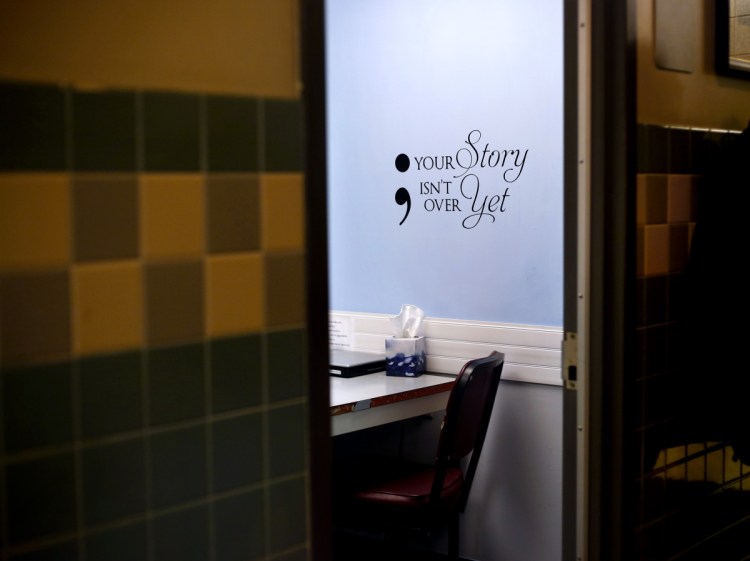Long gaps in employment are never easy for a job seeker to explain. It’s even harder if the missing time was spent in jail, drug or alcohol rehab or just wasted, lost to addiction.
It’s a two-headed problem that people in recovery face all the time: Meaningful work is crucial to developing the sense of purpose and self-esteem needed to fight urges to backslide, but a history of addiction – and all that goes with it – makes it hard to find an employer willing to overlook the past.
A group in York County is trying to do something about it, and it’s an effort that could be replicated all over the state.
On June 7, Biddeford will host a job fair for people in recovery. It’s put together by state Rep. Martin Grohman, who is also a independent candidate for Congress, and York County Sheriff William King, along with staff members at ENSO Recovery, which has treatment centers in Sanford, Portland and Westbrook.
Modeled on a program that’s been successful in New Hampshire, the job fair will run from 9 a.m. to 1 p.m. and will be followed by a class for employers to help them address any concerns they have about this group of potential workers.
According to a story in the Biddeford Journal Tribune, at least a dozen employers have signed up to participate.
Organizers see this as a chance to bring together people who need work and people who need workers. And some of the awkward conversations about gaps in employment are taken care of by the up-front acknowledgment that these applicants are people who have struggled.
To make sure everyone puts their best foot forward, job seekers will get to pick out appropriate attire between 8 a.m. and 10 a.m., and Tulu Salon & Spa in Pepperell Mill will offer them free haircuts.
Initiatives like this one are necessary not only for the people in recovery. With unemployment near historic lows, businesses are struggling to fill jobs. A lot of attention has rightly been focused on what Maine should do to encourage people to move here and fill vacant positions. But just as important is putting to use the skills of people who are here already and who want to be part of the workforce.
That includes senior citizens who are not ready to retire, people with disabilities who need only some accommodations to be productive, and disengaged youth, who don’t know where they fit in this economy.
People in recovery are another great resource for employers who want to cast a wider net so they can fill jobs.
Send questions/comments to the editors.


